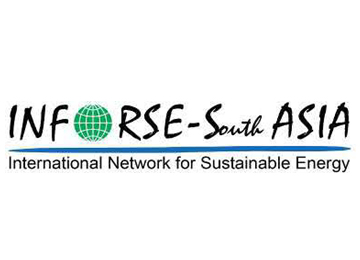INSEDA
Eco Village Development
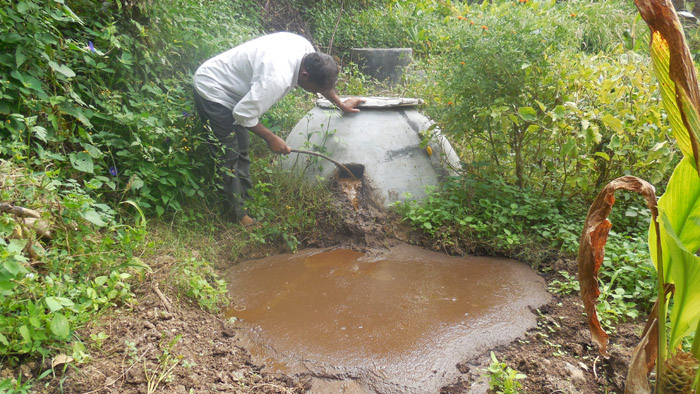
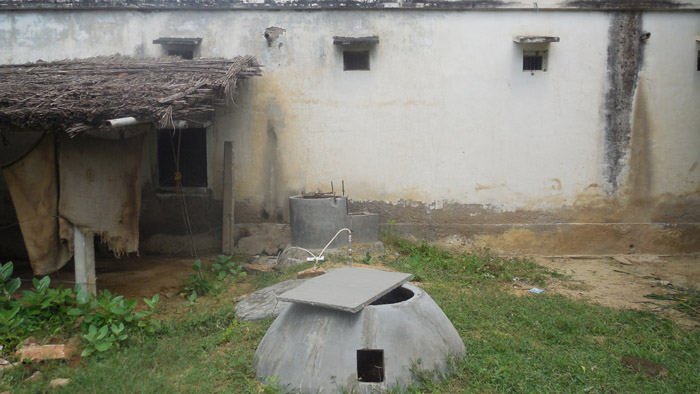
Evidence Based Advocacy for Low-Carbon, Pro-Poor Sustainable “Eco-Village Development “(EVD) in South Asia
The Eco-Village Development (EVD) concept was conceived more than two decades ago in India by Dr Raymond Myles, one of the founder and presently President and Chief Executive of INSEDA as a novel and integrated approach to achieving low-cost, low-carbon development for rural populations.
The Eco-Village Development concept involves the implementation at village-level of appropriate, inexpensive renewable-energy technology (RET) and capacity-building activities for climate change adaptation and mitigation. It takes a collaborative approach by involving community members deeply in planning and implementation, while also giving them the tools to be resilient while facing climate change. EVD is an integrated approach of creating development-focused, low-carbon communities of practice in existing villages. The bundle of practices includes mitigation technologies like small, household-sized biogas plants, improved smokeless stoves, solar-energy technology, improved water mills to generate electric power, stand-alone systems like pico-/micro-hydro power for rural electrification, and solar-powered drying units. It also includes adaptation technologies such as organic farming, roof-water harvesting, water-lifting technologies like hydraulic ram pumps, and other solutions.
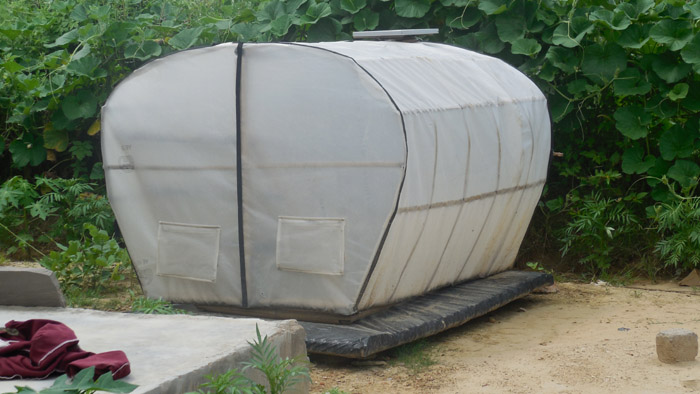
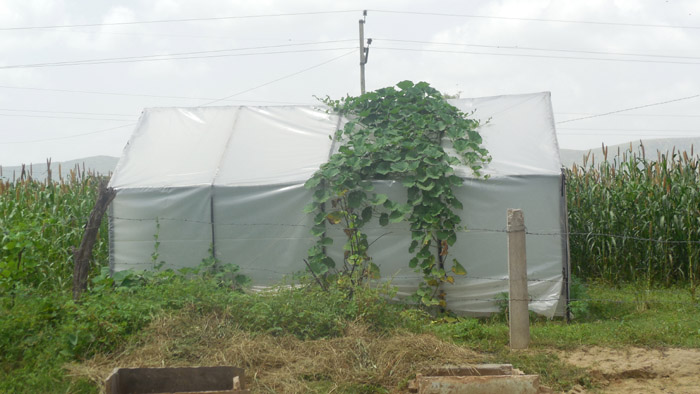
INSEDA has been involved in the developed and implementation of two joint NGO Cooperation projects on Eco-Village Development(EVD), based on low carbon, affordable green technologies were launched in 4 countries in South Asia, namely, Bangladesh, India, Nepal, and Sri Lanka where the other partners had undertaken promotion of EVD concept since the year 2018, supported by a Danish NGO, DIB and in partnership with INFORSE/INFORSE-South Asia, of which INSEDA is the Regional Coordinator. These two EVD Projects and activities has been financially supported by the Civil Society in Development (CISU), Denmark, in two phases. Under this program, INSEDA is responsible for the implementation and advocacy of EVD concept in India and established Margul as model EVD village of Bajna Block in Ratlam district of Madhyanchal region of MP state. In the first phase, INSEDA conducted a feasibility study of EVD solutions in six villages of Bajana Panchayat in Ratlam district in the Madhyanchal region of Madhya Pradesh state of India. In the second phase INSEDA was involved in the implementation of EVD activities in one of the six villages, namely Margul village in Bajana Block, which is on-going and will end in December 2023. The Margul village, which is being developed as model eco village, a number of low cost green technologies, mainly innovated and designed by INSEDA have been installed, like; HEERA, a Multipurpose Hybrid Improved Cookstove (HICS) with chimney, hot water tank, small solar cell powering LED lights and mobile charger; JWALA, an efficient Improved cookstove (ICS) with chimney; Grameen Bandhu biogas plant (constructed using bamboo reinforced cement mortar-BRCM); Solar PV powered street light; Solar lantern with LED and mobile charger; Solar dryer; Vermicompost; bamboo compost basket; Solar poly-greenhouse; Rooftop rainwater harvesting and storage tank (built using bamboo reinforced cement mortar); Kitchen gardening; Day and Night Indoor Solar Powered Cooker, Solar home light system; Energy plantation, horticulture, and Household (Home) forestry; as well as income generation activities through SHG like Poultry raising.
The previous EVD project was implemented jointly with grassroots NGOs based in India (WAFD), Sri Lanka (IDEA), Bangladesh (Grameen Shakti) and Nepal (CRT-Nepal) to showcase low-cost, pro-poor green technologies for climate change mitigation and adaptation. This project was known as "Evidence based advocacy for low–carbon, pro–poor sustainable Eco-Village Development (EVD) in South Asia". The project utilises a community based model, implementing appropriate green technologies in villages in consultation with the primary stakeholders. Based on our findings from this project, we aimed to communicate the same in advocacy activities aimed at policymakers, local government officials and even common people.
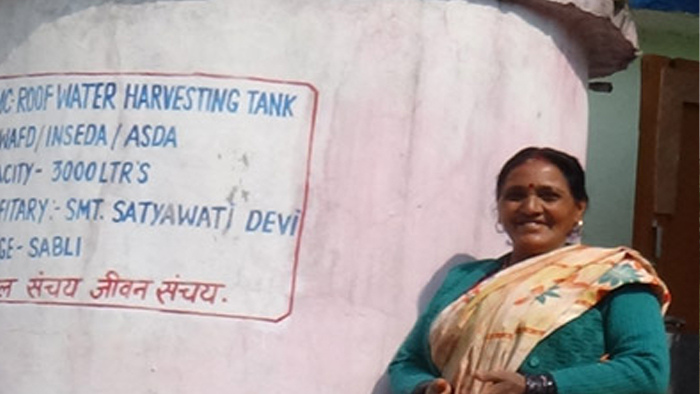
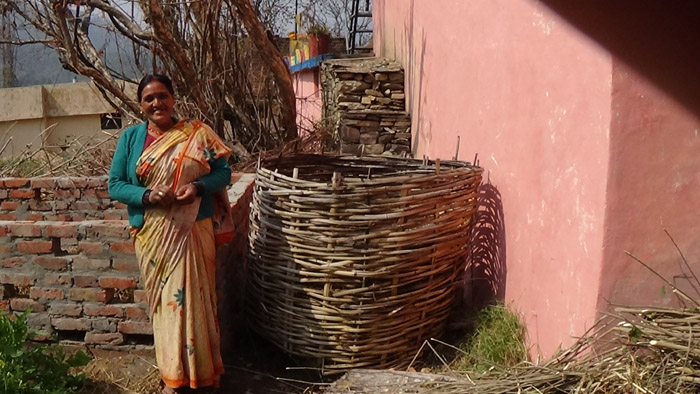
The rationale for choosing villages as the focal point of this model is that they are home not only to some of the poorest people in the South Asian region, but also to the majority of the population. Furthermore, some of these people are also the most vulnerable to climate-mediated risks due to a combination of geographical location with endemic economic, informational and social deprivation. Usually left at the fringes of national and sub-regional governmental policy making, villages are ill equipped to cope with the rapidly evolving but little understood impacts of climate change on their land and livelihoods. Village communities also are ideal for illustrating the concept of contextually appropriate, small-scale innovations in adaptation and mitigation. International and national policies have raised their attention on emission reductions, but the village population presently has a very low per capita rate of emissions and, thus, focusing on mitigation of existing emissions alone is not ideal for them. Planning for a low-carbon future is more vital. Adaptation has gained increasing importance in the wake of permanently altered ecosystems and climate cycles in the region.
Our other partners in this project are INFORSE, Denmark, CANSA (Climate Action Network South Asia) and DIB, Denmark.
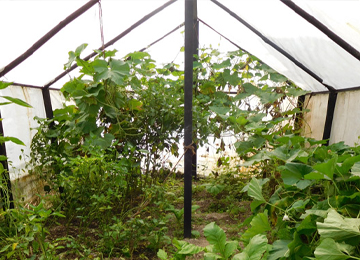
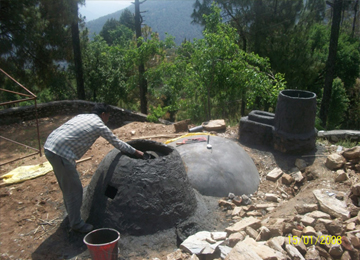
Some of the technologies being showcased in the project were:
- Bamboo based biogas plants: the area in Alwar district has many milk animals and most people have 1-2 or even more animals. The dung is usually left in a heap to make compost in an unscientific manner, and this releases a lot of methane in the atmosphere, while many nutrients too are leached away or washed away during rains. Women walk distances to collect firewood and agriculture waste for using as cooking energy. This again creates indoor pollution when they cook inside the house or on open fires in their courtyards thus adding to atmospheric pollution. Using a biogas plant solves all these problems, no methane in the atmosphere, as this is used as cooking energy, no pollution and no drudgery for women, plus excellent organic manure for farming and improving soil conditions. The biogas plant which will be put uses bamboo reinforced with cement mortar, is cheaper, environmentally friendly as bricks are replaced by bamboo and women are also participants in it’s construction so can earn some money.
- Bamboo based Rain roof water harvesting: being a dry area it is important to collect and save each drop of water for future use. Here too bricks are replaced by bamboo to make these structures and the rain water from the roofs can be collected instead of being allowed to run off.
- Solar dryers made of bamboo.
- Composting Baskets made of bamboo.
- Nursery raising for tree plantation using simple low cost poly house: tree plantation is very important for the area which is quite barren. Poly houses can be used for raisimg saplings for plantation drives.
- Some of the other technologies like briquetting using locally available charred biomass for smokeless and pollution free cooking in the houses with in the Eco-village.
- Improved Hybrid Cookstove, christened the “Heera” stove
- In addition agro-forestry will be promoted using the seedlings produced in the poly house.
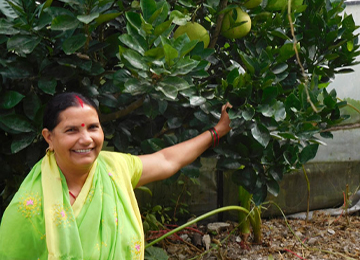
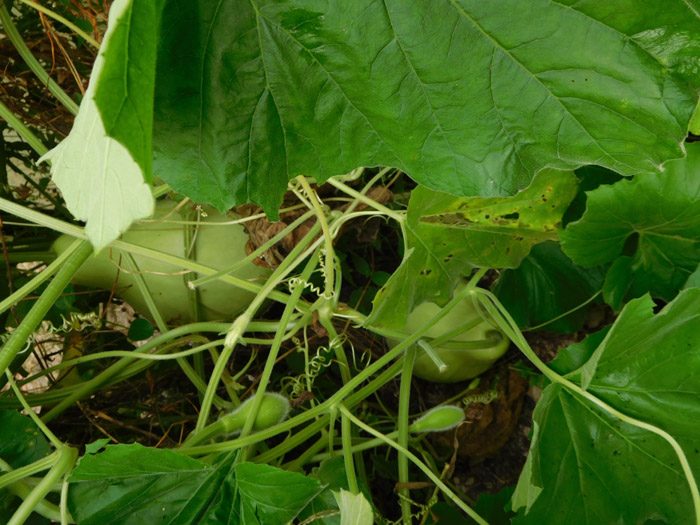
Other than this, the Eco Village model also includes livelihood generation trainings especially those that support sustainable entrepreneurship for women. It also includes trainings on health and sanitation, awareness on climate change and women’s empowerment activities.
The EVD-South Asia project is being funded by CISU (Civil Society in Development), Denmark which provides financial support to development projects of NGOs. CISU funded this project through the partner NGO, DIB (Danish International Human Settlement Service) based in Aarhus, Denmark.
Our Project Partners for the EVD-South Asia project: Integrated Sustainable Energy and Ecological Development Association, India
www.inseda.org
Integrated Sustainable Energy and Ecological Development Association, India
www.inseda.org
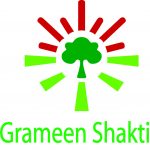 Grameen Shakti, Bangladesh
www.gshakti.org
Grameen Shakti, Bangladesh
www.gshakti.org
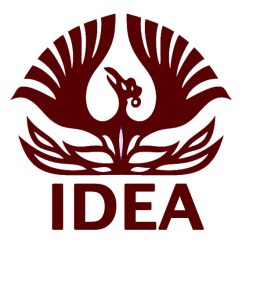 Integrated Development Association, Sri Lanka
www.ideasrilanka.org
Integrated Development Association, Sri Lanka
www.ideasrilanka.org
 Centre For Rural Technology, Nepal
www.crtnepal.org
Centre For Rural Technology, Nepal
www.crtnepal.org
 Dansk International Bosætningsservice, Denmark
www.dib.dk
Dansk International Bosætningsservice, Denmark
www.dib.dk
 International Network For Sustainable Energy, Europe
www.inforse.org
International Network For Sustainable Energy, Europe
www.inforse.org
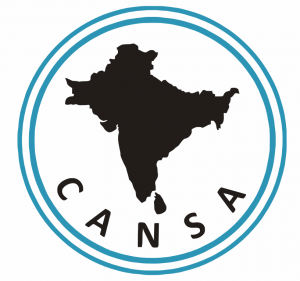 Climate Action Network South Asia, Asia/br>
www.cansouthasia.net
Climate Action Network South Asia, Asia/br>
www.cansouthasia.net
